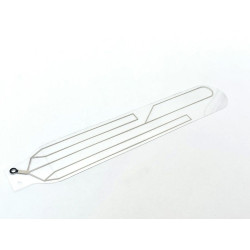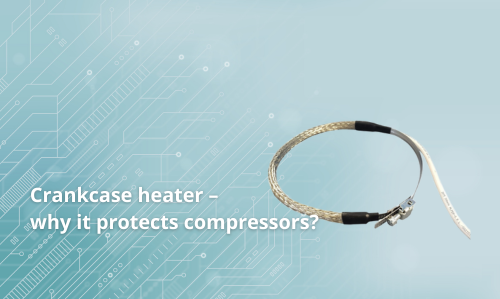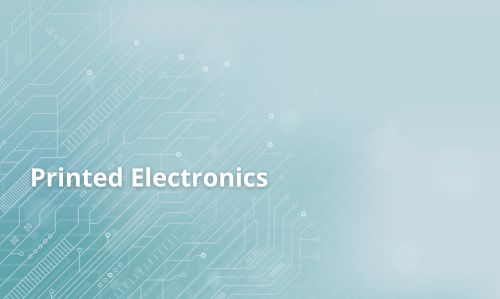

Musisz być zalogowany/a
Kategória




A fényképek csak tájékoztató jellegűek. Lásd a termék specifikációit
Kérjük, használjon latin karaktereket
Alper is a manufacturer of printed electronics specializing in flexible printed sensors. These sensors utilize a PET (polyethylene terephthalate) substrate, known for its strength and durability. Thanks to these properties, Alper's flexible printed sensors are used in industries such as manufacturing and home appliances, where they function as liquid leak detectors.
Placed under washing machines or dishwashers, these sensors can detect the presence of water from the very first drop with extreme sensitivity, making them a powerful tool for monitoring and preventing damage caused by accidental leaks.
Additionally, Alper's printed sensors enable the integration of IoT technology. One example of Alper's technology is its use in smart waste bins. These bins, equipped with capacitive sensors, collect and transmit real-time data to operations centers.
This IoT integration facilitates more efficient waste management by monitoring fill levels and optimizing collection routes. These technological solutions not only improve operational efficiency but also contribute to reducing environmental impact through more efficient waste management.
Tests in accordance with standards EN 60335-1 and EN 50106.
Compliance with regulations S.I. 2016 No. 1101 (Electrical Equipment (Safety) Regulations 2016), BS EN 60335-1, BS EN 50106.
RoHS and REACH compliant.
Printed Electronics is an innovative technology that enables the production of circuits using printing processes. This technology offers numerous advantages, including the ability to create flexible, lightweight, and low-cost sensors.
Alper, a company specializing in this field, uses Printed Electronics to produce a variety of resistive and capacitive sensors. Resistive sensors measure changes in electrical resistance, often used to detect pressure or force. Capacitive sensors, on the other hand, measure changes in electrical capacitance and are commonly used in applications such as presence detection.
Producing these sensors using screen printing techniques allows Alper to create devices with complex geometries on flexible substrates, expanding potential applications in various sectors, from consumer electronics to automotive and the Internet of Things (IoT).
Érdekel ez a termék? További információra vagy egyedi árajánlatra van szüksége?
Musisz być zalogowany/a
Alper is a manufacturer of printed electronics specializing in flexible printed sensors. These sensors utilize a PET (polyethylene terephthalate) substrate, known for its strength and durability. Thanks to these properties, Alper's flexible printed sensors are used in industries such as manufacturing and home appliances, where they function as liquid leak detectors.
Placed under washing machines or dishwashers, these sensors can detect the presence of water from the very first drop with extreme sensitivity, making them a powerful tool for monitoring and preventing damage caused by accidental leaks.
Additionally, Alper's printed sensors enable the integration of IoT technology. One example of Alper's technology is its use in smart waste bins. These bins, equipped with capacitive sensors, collect and transmit real-time data to operations centers.
This IoT integration facilitates more efficient waste management by monitoring fill levels and optimizing collection routes. These technological solutions not only improve operational efficiency but also contribute to reducing environmental impact through more efficient waste management.
Tests in accordance with standards EN 60335-1 and EN 50106.
Compliance with regulations S.I. 2016 No. 1101 (Electrical Equipment (Safety) Regulations 2016), BS EN 60335-1, BS EN 50106.
RoHS and REACH compliant.
Printed Electronics is an innovative technology that enables the production of circuits using printing processes. This technology offers numerous advantages, including the ability to create flexible, lightweight, and low-cost sensors.
Alper, a company specializing in this field, uses Printed Electronics to produce a variety of resistive and capacitive sensors. Resistive sensors measure changes in electrical resistance, often used to detect pressure or force. Capacitive sensors, on the other hand, measure changes in electrical capacitance and are commonly used in applications such as presence detection.
Producing these sensors using screen printing techniques allows Alper to create devices with complex geometries on flexible substrates, expanding potential applications in various sectors, from consumer electronics to automotive and the Internet of Things (IoT).
 Olajteknő fűtés – miért védi a kompresszorokat
Olajteknő fűtés – miért védi a kompresszorokat
 Nyomtatott elektronika
Nyomtatott elektronika
A megfogalmazott véleményedet nem lehet elküldeni
Hozzászólás jelentése
Jelentés elküldve
Jelentésed beküldése nem lehetséges
Írd meg véleményedet
Vélemény elküldve
Véleményed nem lehet elküldeni
